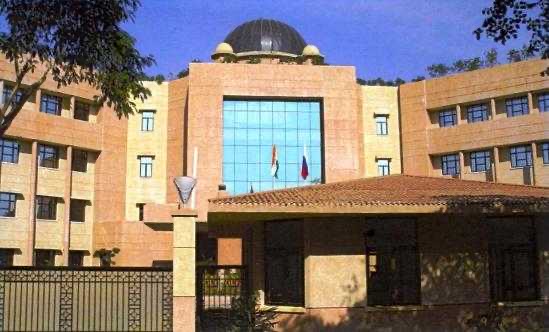As BrahMos Aerospace prepares to appoint its next Director General (DG), the defence industry is closely watching the selection process. A joint venture between India and Russia, BrahMos has established itself as a global leader in missile technology, providing India with strategic defence capabilities.
The impending leadership change comes at a critical juncture for the company as it seeks to expand its production, advance technological innovations, and grow its international footprint. The three contenders for the coveted position each bring unique expertise and strategic advantages, making this a competitive race that will shape the future of BrahMos.
Dr. Mayank Dwivedi: The Political Favourite with Limited Missile Experience
Dr Mayank Dwivedi, currently serving as Director of the Defence Materials Stores and Research & Development Establishment (DMSRDE) for the last two years, has done his PhD in non-metallic materials from IIT Delhi. His PhD in advanced composites and his leadership in DMSRDE, which is developing critical materials for India's defence sector, position him as an insider with techno-managerial and operational knowledge to drive BrahMos forward.
He previously served as the Director of the Directorate of Industry Interface and Technology Management (DIITM) and has worked in the Missile Complex in his younger days.
While Dr Dwivedi's experiance in materials science aligns with the future of defence systems, where stealth and advanced materials play a pivotal role, his competitive edge lies in his connection to BrahMos' new Bhatgaon production facility in Lucknow.
This local alignment is seen as relevant, given the regional significance of the new site. Beyond geographic proximity, observers noted that his political ties provide him with an advantage that may appeal to those looking to strengthen BrahMos' domestic production capabilities.
The challenge for Dr Dwivedi will be whether his relatively limited experience in missile development compared to his competitors will be seen as a drawback.
N. Sivasubramanyam: The Veteran Missile Developer
Among the contenders, Dr. N. Sivasubramanyam stands out as a seasoned expert in missile systems. His career, beginning with the development of the Prithvi missile as Project Director, has been marked by an intimate involvement in major missile projects India has undertaken.
His experience with Bharat Dynamics Limited (BDL) and later with DRDO highlights a deep understanding of missile production at both technical and managerial levels.
Dr. Sivasubramanyam's strengths are not just in his technical knowledge but in his strategic vision for BrahMos Aerospace. His experience could enhance the company's leadership in missile production, particularly as India seeks to expand defence exports.
With a broad understanding of missile systems and defence infrastructure, he is well-positioned to steer BrahMos through the complexities of international defence partnerships, such as those involving the BrahMos missile, which has already attracted interest from over 10 countries.
His potential appointment signals continuity and reliability, traits that will be crucial as BrahMos works to maintain its reputation as a global leader in supersonic missile technology. Under his leadership, the focus could remain on technological excellence, with potential expansions in international collaborations and exports.
Dr JR Joshi: The Long-Range Visionary
Dr. JR Joshi is a reputed scientist at the Defence Research and Development Laboratory (DRDL). He is a crucial figure in shaping India's missile technology landscape. Known for his innovative approach, Dr Joshi has been instrumental in managing high-stakes international collaborations, such as his role as Deputy Project Director for the Long Range Surface-to-Air Missile (LRSAM) developed in partnership with Israel Aerospace Industries (IAI).
This project, aimed at providing robust defence against aerial threats, highlights his adeptness in navigating global dynamics and securing cutting-edge technological partnerships—a skill that could be invaluable as BrahMos Aerospace looks to further its global outreach and influence.
Following his leadership as Deputy Project Director, Dr Joshi advanced to Project Director of the LRSAM for the Iregional strategic defence posturebecameJoshi'smme Director for the Medium Range Surface-to-Air Missile (MRSAM), further solidifying his credentials in managing large, complex defence initiatives. These roles highlight his capability in both technical leadership and programme management, making him a compelling candidate for BrahMos Aerospace's top post.
Currently, Dr. Joshi leads one of the most significant and strategic projects in India's defence portfolio: Project KUSHA. This ₹21,700 crore initiative focuses on developing three distinct missile systems to counter advanced aerial threats, including those posed by sophisticated platforms like Russia's S-400.
Under his guidance, the KUSHA project aims to enhance India's air defence capabilities and solidify its strategic posture in an increasingly volatile region. His success in steering this project positions Dr. Joshi as a visionary capable of managing BrahMos' next-generation missile systems and ensuring that the organisation remains at the forefront of global missile technology..
The selection of the next Director General of BrahMos Aerospace is more than just a leadership change—it will have strategic ramifications for India's missile capabilities and its standing in the global defence sector. Each contender offers a distinct path forward.
Dr Mayank Dwivedi's supposed political links and roots in Kanpur could prioritise regional alignment and exposure to advanced material sciences.
Dr N. Sivasubramanyam's wealth of missile development experience offers stability and continuity to India, positioning BrahMos for expanded global partnerships and technological leadership. Dr JR Joshi's vision and expertise in high-tech missile systems could push BrahMos into new realms, especially in the air defence domain.
Ultimately, the decision will signal the direction BrahMos Aerospace intends to take in the coming years: whether it prioritises regional production capabilities, expands its production and export strategies, or innovates towards the next generation of missile technologies. Whatever the outcome, this appointment will shape not only the future of BrahMos Aerospace but also India's abilities and its role in the global defence market.
A Defining Moment for BrahMos and India's Defence Strategy
The race to lead BrahMos Aerospace comes at a pivotal moment for the company and for India's broader defence ambitions. As India looks to enhance its missile capabilities and expand its role as a defence exporter, the new Director General will play a key role in shaping these ambitions.
The decision will reflect India's defence priorities and its vision for BrahMos as both a strategic asset and a global defence player. The world will be watching closely to see which path BrahMos takes under new leadership—one that could redefine India's position in the global defence arena.

The BuckStopper, run by a group of seasoned journalists, holds the powerful accountable. The buck stops with them, as they cannot shrug off their official responsibilities.



